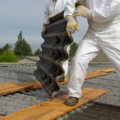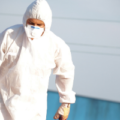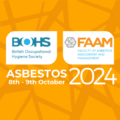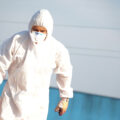Experts Warn of Asbestos Contaminated Play Sand
The Faculty of Asbestos Assessment and Management (FAAM), the UK professional body for asbestos analysts and surveyors has identified a play product which has been available in the UK which contains asbestos. This follows concerns in Australia and New Zealand around a range of contaminated play sands and recent lawsuits being launched concerning asbestos in talcum powder.
The new concerns about asbestos content in some batches of coloured play sand available on the market in Australia and New Zealand through major distribution chains have led to the closure of some schools and childcare facilities and a testing programme around play sand.
FAAM is investigating the nature of the risk associated with potential trace contamination of asbestos, recognising that inhalation of asbestos fibres can cause significant and irreversible illness. To date, there is no immediate evidence of products which are known to be contaminated being available on the UK market, other than the EC Rainbow Sand.
FAAM Registrar, Jonathan Grant says, “There is genuine and understandable concern about this popular play product creating any risk to children and those who care for them. We are in close contact with those running testing of products in our sister organization FAAMANZ and checking the UK market. One withdrawn item with asbestos detected in it has been available to the UK market https://www.amazon.com/Educational-Colours-Rainbow-Sand-1-3/dp/B095CDZSBV and this has been reported to the retailer.”
“This highlights a broader asbestos risk from our global marketplaces. We all love things that can be bought cheaply from overseas and delivered to our door, but that comes with a risk. Some countries do not have restrictions on the use of asbestos in products or do not have the same standards.”
FAAM, which is a part of leading science charity, the British Occupational Hygiene Society, points out that China will label goods with less than 5% asbestos as being asbestos-free.
Earlier this year, the South Korean products agency found asbestos in 590 brake pad products for sale on one popular global shipping distributor.
“There is widespread awareness of asbestos in buildings and the 5,000 plus deaths it causes workers each year. However, asbestos was widely used in equipment and products and still is. For those concerned about things like play sand, you can choose to buy products which are labelled as made in Britain, which avoids the lower global standards.”
Earlier this year, BOHS pushed MPs to reintroduce the “precautionary principle” into the Product Safety and Metrology Act, as it was passing through Parliament. This principle, which can be summarized as a legal version of “better safe than sorry”, was inadvertently abolished by Brexit legislation and would allow the Government to restrict products where there were strong indications of a serious threat to the public or workers, without needing to show substantial evidence.
“We know that there is no way that every product landing on British doorsteps can be tested individually for safety and the labels can’t be made to tell the truth. So, it was a missed opportunity for the Government not to give themselves the legal powers to provide restrictions on types of products which may cause serious illness to humans,” says Professor Kevin Bampton, BOHS CEO and legal expert.
“We do have the precautionary principle for the environment, but not enshrined in product safety anymore. BOHS continues to point out that bats, newts and seagulls in some ways have better protection than people working in Britain and, potentially, even our children.”
For more information on current products assessed as having risk in play sand please see:




